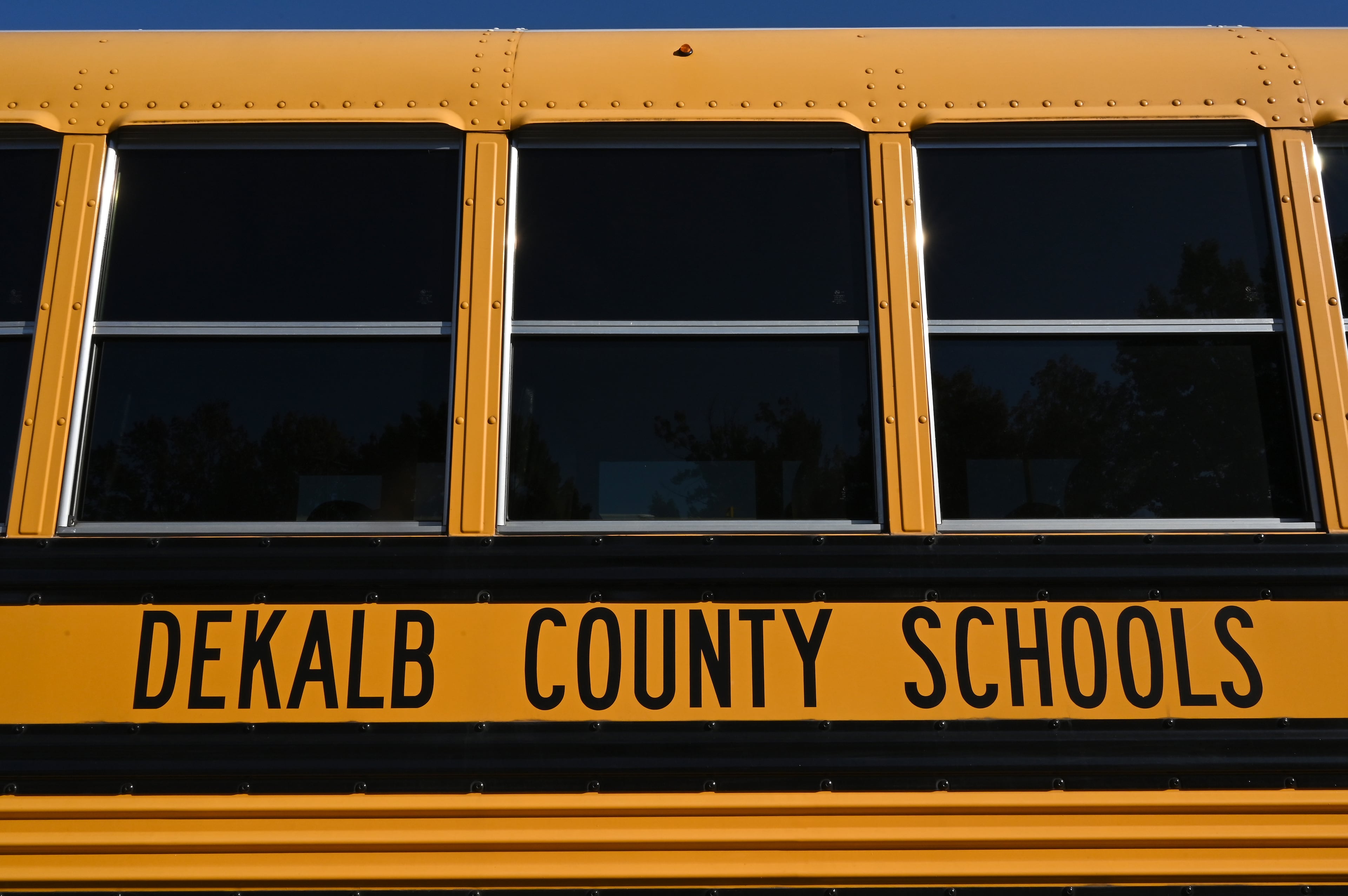Atlanta parents urge school board to replicate DeKalb charter school

Buc-ee the beaver has suffered a terrible death. He was apparently murdered and found lying face-down in a pool of his own blood. Now it’s up to Dennis de Gracia’s science students to figure out who did it.
They dust for fingerprints at the crime scene and match them to a prime suspect — Matt Tyson, the school principal. He immediately confesses and the case is solved.
In this classroom, where students are using forensic science to solve a crime with the help of two teachers, half of the students are neurotypical. The other half are neurodiverse, meaning they may have a disorder like autism or ADHD (attention-deficit/hyperactivity disorder). That’s the model for Tapestry Public Charter School in DeKalb, which opened in 2013.

Now, a group of Atlanta parents wants to replicate the program. More than 650 Atlanta Public Schools parents have signed a petition urging the school board to approve Tapestry’s charter. A vote is scheduled for Tuesday. Atlanta has not approved a charter school in a decade, declining applications from four other schools.
The school board has rescheduled the vote on Tapestry twice. The district asked school leaders to defer the application until APS completes its search for a new superintendent.
Devon Christopher, one of Tapestry’s founders and its replication chair, said school leaders declined, opting to keep the vote on the board’s September calendar.
“Next year, it’ll be, ‘The superintendent just got here,’ and then the next year, it may be, ‘Oh, the superintendent’s trying to fix this other stuff,’” she said. “We didn’t feel like we would be fulfilling our commitment to the community if we withdrew our petition.”
School leaders hope to open the school next school year, starting with grades 6-10.
Atlanta school board member Michelle Olympiadis was asked about the upcoming Tapestry vote during a recent community meeting. Olympiadis didn’t say how she planned to vote, but expressed concerns about funding.
“My concern is what are we going to do with the budget?” she said. “What school are we going to close to support another school to thrive?”
Charter schools are public, but operate independently. Startup charters, like Tapestry, have their own governing boards but receive money from the state and from their local tax base. Because the money “follows the child” to a charter school, some see charters as enemies of traditional public schools.

The last charter school the Atlanta school board approved was Atlanta Classical Academy in 2013.
Verdaillia Turner, the president of the Georgia Federation of Teachers, believes if Tapestry were replicated in APS, eventually the school population would become more neurotypical — a process referred to as “cream skimming” by some charter school opponents.
“That school will become more and more selective as it relates to discarding the children with special needs,” she said.
However, Turner said, one of the biggest keys to a school’s success is parental involvement.
Tapestry seems to have that characteristic in spades.
“(Tapestry has) helped me a lot with my issues,” said ninth grader Jack Marks in an interview with The Atlanta Journal-Constitution. “For example, I used to break stuff but now I don’t at all because Tapestry’s helped me through that.”
His mother, Melanie Marks, said his school experience improved beyond the academic realm.
“He has friends like he’s never had in his life,” she said. “He’s involved in many, many different clubs in the school … and that would not be the case in any other public school.”
In addition to inclusive classrooms, the decade-old school also features a sensory room with swings, soft seating and balance boards where students can “get the wiggles out.” Tapestry also has outdoor learning spaces and a quiet room where students who are feeling overwhelmed can go to reset. The school serves students in grades 6-12. It has an enrollment of about 300 students and a waiting list just as long.
The matter is important to Christopher, in part, because her son is a Tapestry graduate. Now a sophomore at Georgia Tech, he was diagnosed with autism spectrum disorder (ASD) in the second grade.
“He had frequent meltdowns at school,” Christopher said. “We were told from a very young age that we should prepare low expectations for him, that we should presume that he might not finish high school, that he would not go to college.”

Atlanta parents are so passionate about the school, they want the board to replicate Tapestry even if their kids aren’t able to go. Students are chosen through a lottery. Michelle Hall’s 10-year-old son has a genetic disorder that makes learning difficult. She thinks he could benefit from Tapestry’s environment. Still, there’s no guarantee he’d be able to attend.
“I was in the Trader Joe’s parking lot the other day and was talking to a child that would clearly be served by a place like Tapestry and so I’m like, ‘Well, if my son didn’t get in, maybe he could and that would be wonderful.’”



